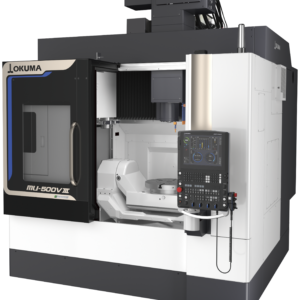เทคโนโลยีดิจิทัลขั้นสูง
ผู้นำในอุตสาหกรรมโลจิสติกส์กำลังเร่งนำเทคโนโลยีดิจิทัลขั้นสูงมาใช้งานโดยส่วนใหญ่คาดว่าจะมียูสเคสใหม่อย่างน้อยสิบยูสเคสในอีกสามปีข้างหน้า จากการสำรวจของ McKinsey มากกว่า 260 บริษัท พบว่าจากทั้งฝั่งผู้ส่งสินค้าและผู้ให้บริการ เผยให้เห็นถึงระดับการนำดิจิทัลมาใช้ที่สูง แผนการลงทุนที่เข้มแข็ง และความสนใจที่เพิ่มขึ้นใน AI เชิงสร้างสรรค์ขั้นสูง (gen AI)
อย่างไรก็ตามแม้จะมีความคาดหวังสูง แต่ก็ยังคงมีความท้าทายอยู่ ภูมิทัศน์เทคโนโลยีโลจิสติกส์ยังคงกระจัดกระจายทำให้บริษัทต่างๆต้องรวมหลายโซลูชันเข้าด้วยกันเพื่อให้ทำงานได้อย่างมีประสิทธิภาพ
แม้ว่า 85% ของผู้ตอบแบบสอบถามจะระบุว่าโครงการดิจิทัลช่วยเพิ่มคุณค่าให้กับองค์กร แต่หลายแห่งยังคงเผชิญกับปัญหาความล่าช้าอันเนื่องมาจากคุณภาพข้อมูลต่ำ ความยากลำบากในการผสานระบบ และความท้าทายในการบริหารการเปลี่ยนแปลงองค์กร

Source: Digital logistics: Into the express lane, McKinsey & Company
การที่จะใช้ประโยชน์จากการแปลงรูปทางดิจิทัลในโลจิสติกส์อย่างประสบความสำเร็จ บริษัทต่างๆจำเป็นต้องเข้าใจว่าจะได้อะไรจากการแปลงรูปทางดิจิทัลเสียก่อนและกำหนดวิสัยทัศน์ที่ชัดเจน
ซึ่งรวมถึงการกำหนดว่ากระบวนการและเทคโนโลยีจะเชื่อมโยงกับกิจกรรมและเป้าหมายเฉพาะอย่างไรเพื่อให้เกิดประโยชน์และคุณค่า แผนกลยุทธ์ที่ชัดเจนจะช่วยกำหนดวิธีการใช้ข้อมูล การบูรณาการระบบ
และที่สำคัญที่สุดวิธีการที่องค์กรจะต้องปรับเปลี่ยนวิธีการทำงาน การเอาชนะความท้าทายที่ยาวนานและส่วนใหญ่เป็นรูปแบบอนาล็อก เช่น การขาดทักษะและการต่อต้านการเปลี่ยนแปลง เป็นสิ่งสำคัญในการปลดล็อกคุณค่าของดิจิทัล

Source: Digital logistics: Into the express lane, McKinsey & Company
เทคโนโลยีดิจิทัลถูกนำมาใช้กันอย่างแพร่หลายโดยทั้งผู้ขนส่งสินค้าและผู้ให้บริการในด้านต่างๆ ของโลจิสติกส์ เช่น การวางแผน การจัดหาสินค้า การดำเนินงาน และการจัดการประสิทธิภาพ การสำรวจได้ศึกษาการนำยูสเคสใช้งานดิจิทัล 28 รูปแบบมาใช้ ตั้งแต่การพยากรณ์ความต้องการไปจนถึงการทำให้คลังสินค้าทำงานอัตโนมัติและการบำรุงรักษาทรัพย์สินในปีนี้รายการดังกล่าวได้ขยายเพิ่มเติมให้รวมถึงยูสเคสใช้งาน Generative AI (gen AI) ประมาณ 10 ยูสเคส ซึ่งใช้โมเดลภาษาขนาดใหญ่เพื่อทำให้กระบวนการต่างๆ เช่น การวิเคราะห์สถานการณ์และการสร้างเอกสารเป็นไปโดยอัตโนมัติ
สำหรับบริษัทขนาดใหญ่ที่มีรายได้เกิน 500 ล้านดอลลาร์ เรื่องราวเป็นการเติบโตอย่างรวดเร็วในการใช้งานดิจิทัลที่สร้างจากฐานที่แข็งแกร่งอยู่แล้ว ในขณะที่บริษัทขนาดเล็กที่มีรายได้ต่ำกว่ามักจะมีการนำดิจิทัลและ AI ไปใช้น้อยกว่าเนื่องจากทรัพยากรที่จำกัดและแนวทางการลงทุนที่ระมัดระวังมากกว่าองค์กรขนาดใหญ่
ทั้งผู้ขนส่งสินค้าและผู้ให้บริการ แสดงให้เห็นถึงความทะเยอทะยานอย่างชัดเจนในการนำ gen AI มาใช้ โดย 55% ขององค์กรเหล่านี้ได้ใช้งานยูสเคส gen AI อย่างน้อย 2 ยูสเคสแล้ว และตั้งเป้าที่จะใช้งานอย่างน้อย 7 ยูสเคสในอีกสามปีข้างหน้า

เทคโนโลยีที่ผู้ขนส่งสินค้าใช้งานแตกต่างกันไปตามอุตสาหกรรม ผู้ขนส่งสินค้าในกลุ่มพลังงาน อุตสาหกรรม และวัสดุ มีความเป็นผู้นำเทคโนโลยีดิจิทัลมาใช้งาน ในขณะที่บริษัทในอุตสาหกรรมขั้นสูงมีการใช้งาน Generative AI มากกว่าบริษัทอื่นเล็กน้อย
อย่างไรก็ตามบริษัทในอุตสาหกรรมในกลุ่มการดูแลสุขภาพอยู่ในกลุ่มที่ล้าหลังที่สุด โดยมีการใช้งานดิจิทัลและ gen AI น้อยที่สุด อีกทั้งมีความคาดหวังต่ำที่สุดในการนำเทคโนโลยีใหม่ๆ มาใช้ในอีกสามปีข้างหน้า สำหรับบริษัทขนาดเล็กที่มีรายได้ต่ำกว่า 500 ล้านดอลลาร์ มักจะตามหลังบริษัทขนาดใหญ่ทั้งในการใช้งานในปัจจุบันและในอนาคต ช่องว่างนี้มักเกิดจากทรัพยากรที่จำกัดและแนวทางการลงทุนที่ระมัดระวังมากกว่า
อย่างไรก็ตาม ในกลุ่มบริษัทขนาดเล็กในภาคการบริโภคและการดูแลสุขภาพได้แสดงถึงระดับวุฒิภาวะทางดิจิทัลที่สูงกว่า ซึ่งน่าจะเป็นผลมาจากการให้ความสำคัญอย่างมากกับการตอบสนองผู้บริโภคโดยตรง

เมื่อพิจารณาเฉพาะเครื่องมือดิจิทัลที่ใช้งานอยู่แล้ว การสำรวจพบความแตกต่างอย่างชัดเจนในแง่ของการยอมรับเทคโนโลยีและการรับรู้ความแตกต่างเชิงคุณค่าระหว่างเทคโนโลยีดิจิทัลแบบดั้งเดิมและเทคโนโลย Generative AI
สิ่งนี้ชี้ให้เห็นว่าเทคโนโลยี Generative AI ขั้นสูงยังอยู่ในระยะเริ่มต้น ประมาณครึ่งหนึ่งของบริษัทที่เริ่มใช้ Generative AI เชื่อว่าการนำเครื่องมือเหล่านี้มาใช้งานจะต่างจากเทคโนโลยีที่ผ่านมาในอดีตอย่างยากที่จะเทียบเคียงกันได้ เกือบ 60% ระบุว่าการเปลี่ยนแปลงด้วย Generative AI มีความซับซ้อนมากกว่า
แม้ว่าจะมีความซับซ้อนที่เพิ่มขึ้น แต่บริษัทเหล่านี้ก็ต่างมองว่าเทคโนโลยีที่สร้างคุณค่าและประโยชน์อย่างมหาศาล โดยประมาณ 60% รู้สึกตื่นเต้นกับการเปลี่ยนแปลงด้วย Generative AI มากกว่าการแปลงดิจิทัลแบบเดิม และ 65% คาดหวังว่าเทคโนโลยีใหม่เหล่านี้จะสร้างคุณค่าแก่ธุรกิจมากกว่าเทคโนโลยีที่ผ่านมา

การเปลี่ยนแปลงทางดิจิทัลที่ประสบความสำเร็จต้องการมากกว่าการมีเทคโนโลยีขั้นสูง บริษัทต่างๆ ตระหนักว่าการดำเนินการให้มีประสิทธิภาพยังขึ้นอยู่กับบุคลากรที่มีทักษะ กระบวนการบริหารการเปลี่ยนแปลงที่แข็งแกร่ง และกลยุทธ์ที่มีประสิทธิภาพในการขยายและผสานกระบวนการทำงานใหม่ๆ
จากผลการสำรวจ อุปสรรคที่พบบ่อยที่สุดในโครงการดิจิทัล คือปัญหาที่เกี่ยวกับเทคโนโลยี เช่น คุณภาพของข้อมูล ความพร้อมใช้งานของข้อมูล และความซับซ้อนในการผสานรวม นอกจากนี้ยังมีปัญหาที่เกี่ยวข้องกับบุคลากร เช่น การขาดแคลนทักษะและความยากลำบากในการบริหารจัดการการเปลี่ยนแปลง
ในปีนี้พบว่าความกังวลเกี่ยวกับคุณภาพของข้อมูลถูกหยิบยกขึ้นมาพูดคุยมากกว่าปีที่แล้ว ซึ่งอาจเป็นเพราะเครื่องมือดิจิทัลและ AI ขั้นสูงต้องการข้อมูลที่มีคุณภาพสูงขึ้น
นอกจากนี้บริษัทต่างๆ อาจเริ่มโครงการใหม่ด้วยข้อมูลที่ยังไม่สมบูรณ์แบบ เมื่อต้องขยายการใช้งานทั่วทั้งองค์กร ก็จะเกิดปัญหาปลายประการตามมา เช่น ปัญหาที่เกี่ยวกับกระบวนการ เช่น การขยายตัวและการปฏิบัติตามกฎระเบียบ
โดยเฉพาะในบริบทของการใช้ Generative AI แม้ว่ามีเพียงหนึ่งในแปดบริษัทเท่านั้นที่ระบุว่าการได้รับผลตอบแทนจากการลงทุนด้านดิจิทัลเป็นเรื่องยาก แต่ประเด็นนี้กลับกลายมาเป็นข้ออ้างมากที่สุดจากบริษัทที่เลื่อนหรือยกเลิกแผนการเปลี่ยนแปลงสู่ดิจิทัล
Article by: Asst. Prof. Suwan Juntiwasarakij, Ph.D., Senior Editor & MEGA Tech












